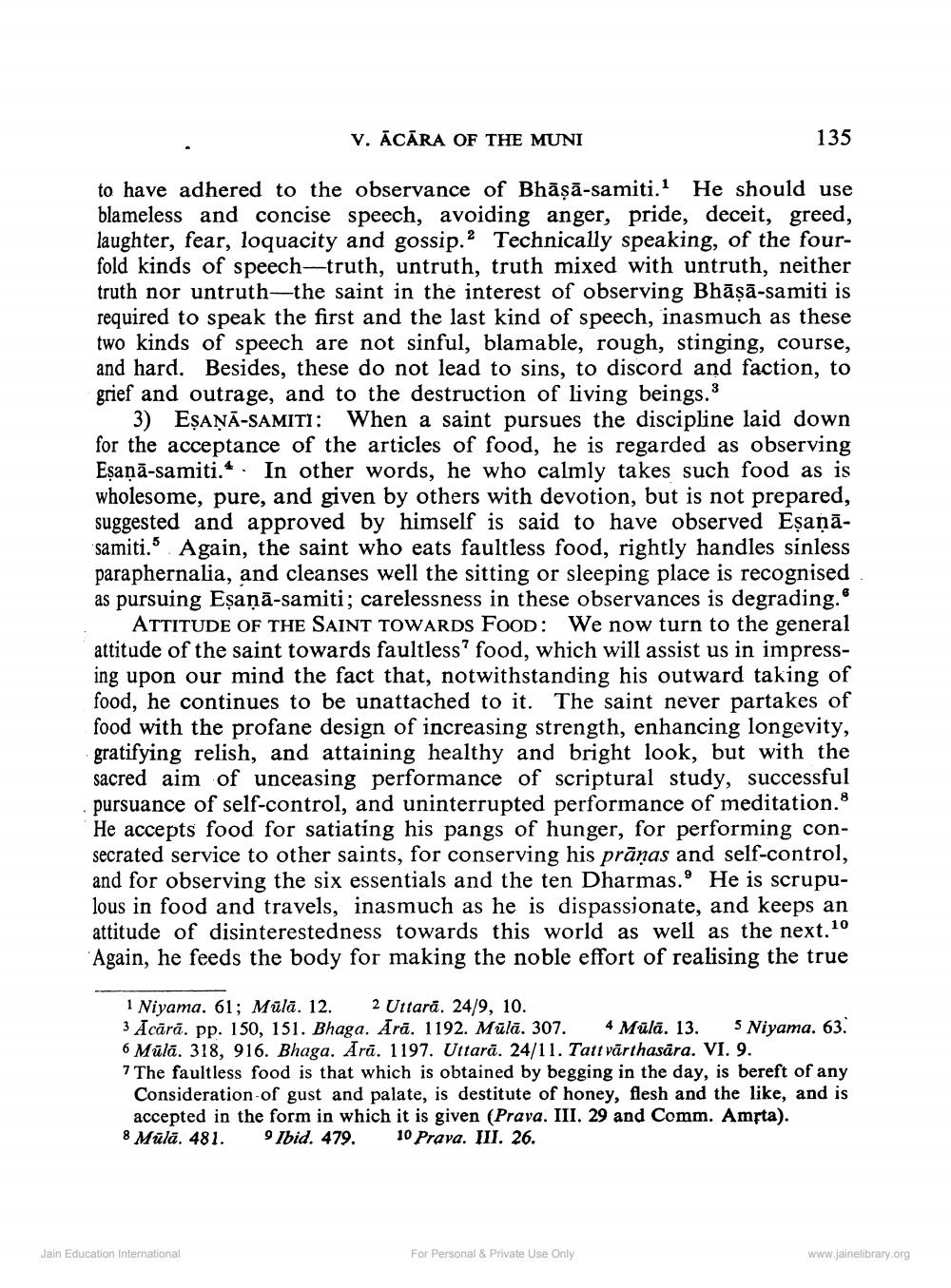________________
V. ĀCĀRA OF THE MUNI
135
be destruction ursues the
needed as ob
to have adhered to the observance of Bhāṣā-samiti. He should use blameless and concise speech, avoiding anger, pride, deceit, greed, laughter, fear, loquacity and gossip.2 Technically speaking, of the fourfold kinds of speech-truth, untruth, truth mixed with untruth, neither truth nor untruth-the saint in the interest of observing Bhāṣā-samiti is required to speak the first and the last kind of speech, inasmuch as these two kinds of speech are not sinful, blamable, rough, stinging, course, and hard. Besides, these do not lead to sins, to discord and faction, to grief and outrage, and to the destruction of living beings. 3
3) EŞAŅĀ-SAMITI: When a saint pursues the discipline laid down for the acceptance of the articles of food, he is regarded as observing Esaņā-samiti.. In other words, he who calmly takes such food as is wholesome, pure, and given by others with devotion, but is not prepared, suggested and approved by himself is said to have observed Eșaņāsamiti. Again, the saint who eats faultless food, rightly handles sinless paraphernalia, and cleanses well the sitting or sleeping place is recognised as pursuing Eşaņā-samiti; carelessness in these observances is degrading.
ATTITUDE OF THE SAINT TOWARDS FOOD: We now turn to the general attitude of the saint towards faultless? food, which will assist us in impressing upon our mind the fact that, notwithstanding his outward taking of food, he continues to be unattached to it. The saint never partakes of food with the profane design of increasing strength, enhancing longevity, gratifying relish, and attaining healthy and bright look, but with the sacred aim of unceasing performance of scriptural study, successful pursuance of self-control, and uninterrupted performance of meditation. He accepts food for satiating his pangs of hunger, for performing consecrated service to other saints, for conserving his prānas and self-control, and for observing the six essentials and the ten Dharmas.' He is scrupulous in food and travels, inasmuch as he is dispassionate, and keeps an attitude of disinterestedness towards this world as well as the next.10 Again, he feeds the body for making the noble effort of realising the true
1 Niyama. 61; Mülā. 12. 2 Uttarā. 24/9, 10. 3 Acārā. pp. 150, 151. Bhaga. Arā. 1192. Mülā. 307. 4 Mülā. 13. 5 Niyama. 63. 6 Mülā. 318, 916. Bhaga. Arū. 1197. Uttarā. 24/11. Tatt värthasara. VI. 9. 7 The faultless food is that which is obtained by begging in the day, is bereft of any Consideration of gust and palate, is destitute of honey, flesh and the like, and is accepted in the form in which it is given (Prava. III. 29 and Comm. Amfta). 8 Müla. 481. Ibid. 479. 10 Prava. III. 26.
Jain Education International
For Personal & Private Use Only
www.jainelibrary.org




